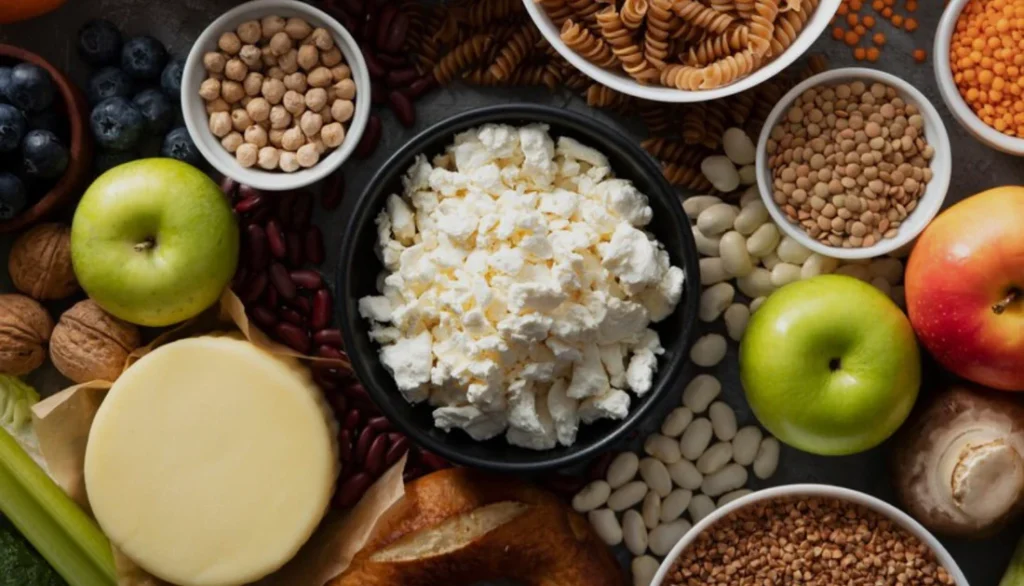Experiencing heartburn while pregnant can be uncomfortable, frustrating, and even disrupt your sleep. If you’re searching for natural remedies for heartburn during pregnancy, you’re not alone—many expectant mothers crave safe, effective relief without relying on medications. The good news? There are numerous holistic, gentle strategies to soothe that persistent burn and keep you feeling comfortable throughout your pregnancy.
This comprehensive guide will explore why heartburn is so common during pregnancy, review a variety of proven natural fixes, and offer practical tips specifically for moms-to-be. Whether you’re looking for immediate relief or want to prevent heartburn before it starts, you’ll find actionable advice here to support a healthy, enjoyable pregnancy journey.
Understanding Heartburn During Pregnancy
Why Does Heartburn Happen When You’re Pregnant?
Heartburn, also known as acid reflux, is a burning pain or discomfort in your chest and throat. During pregnancy, it’s especially common due to:
- Hormonal changes: Elevated levels of progesterone relax the valve between the stomach and esophagus, making it easier for stomach acid to escape upwards.
- Physical pressure: As your baby grows, your uterus expands, pushing up against your stomach and increasing the likelihood of reflux.
- Slower digestion: Pregnancy hormones slow down your digestive tract, making food linger longer and increasing acid buildup.
Symptoms of Pregnancy Heartburn
Most expectant mothers report:
- A burning sensation in the chest or behind the breastbone
- Sour taste in the mouth
- Bloating, burping, or nausea after eating
- Discomfort that worsens when lying down or after eating
While heartburn is typically harmless to your baby, it can greatly impact your comfort and sleep, making it important to manage with safe, natural strategies.
Natural Remedies for Heartburn During Pregnancy: Immediate Relief

When searching for natural remedies for heartburn during pregnancy, you want options that are gentle, fast-acting, and pregnancy-safe. Here are some of the most effective:
1. Chew Sugar-Free Gum
Chewing gum stimulates saliva production, which can help neutralize acid and clear it from your esophagus. Opt for sugar-free varieties or gentle herbal flavors.
2. Sip on Ginger Tea
Ginger is known for its calming effects on the digestive tract. A mild cup of ginger tea (not too strong) can soothe heartburn symptoms. Slice fresh ginger and steep in hot water for 5-10 minutes. Drink slowly, especially if you’re sensitive to strong tastes.
3. Eat Small, Frequent Meals
Large, heavy meals can increase stomach pressure and worsen reflux. Instead:
- Eat smaller portions throughout the day
- Space out meals every 2-3 hours
- Avoid overeating, especially close to bedtime
4. Drink Almond Milk
Unsweetened almond milk may help neutralize stomach acid and soothe irritation. If you’re not allergic to nuts, sip a small glass as needed after meals or when heartburn strikes.
5. Elevate Your Head When Resting
Gravity can work in your favor. If heartburn worsens at night:
- Prop up your head and shoulders with extra pillows
- Consider a wedge pillow for propping up your upper body
- Avoid lying flat directly after eating
6. Wear Comfortable, Loose Clothing
Tight waistbands or restrictive clothing can put extra pressure on your stomach, making reflux more likely. Choose relaxed, stretchy outfits—especially after meals.
7. Try Apple Cider Vinegar (Diluted)
Some women find relief by mixing 1 teaspoon of apple cider vinegar with a large glass of water. This may help balance stomach acidity, but start with a small amount and discontinue if it worsens symptoms.
Natural Remedies for Heartburn During Pregnancy: Prevention Strategies
Preventing heartburn is often easier than curing it! For many women, small adjustments to daily routines can make a big difference.
1. Identify Your Personal Triggers
Common foods that tend to worsen pregnancy heartburn include:
- Spicy foods (hot peppers, salsas)
- Acidic fruits (oranges, lemons, tomatoes)
- Fried, greasy, or fatty foods
- Chocolate and mint
- Carbonated drinks
- Caffeinated beverages
Keep a food diary for a few days to track which items aggravate your symptoms. Once you spot a pattern, minimize or avoid those triggers.
2. Eat Slowly and Chew Thoroughly
Eating too quickly can cause you to swallow air, bloat, and overwhelm your digestive system. Slow down, savor your meals, and chew each bite carefully for easier digestion.
3. Avoid Late-Night Snacking
Give yourself at least 2-3 hours between your last meal and bedtime to allow digestion to progress and stomach acids to subside.
4. Stay Upright After Eating
After meals, spend time seated or take a gentle walk to encourage healthy digestion. Avoid lying down or reclining immediately after eating.
5. Hydrate Strategically
Drink plenty of water throughout the day, but try to sip liquids between meals rather than during meals. Too much liquid with meals can distend your stomach and contribute to reflux.
Holistic Support: Mind-Body Approaches and Lifestyle Tweaks

Heartburn during pregnancy isn’t only about what you eat; how you navigate stress, move your body, and care for your well-being also plays a key role.
1. Gentle Prenatal Yoga and Movement
Regular physical activity (as approved by your healthcare provider) helps keep digestion moving and minimizes pressure in your abdomen. Simple stretches or gentle prenatal yoga can also help you stay comfortable and reduce stress.
2. Mindful Eating Practices
Stress can exacerbate digestive symptoms. Try:
- Eating in a calm, quiet place
- Focusing on the flavors and textures of your food
- Taking deep, slow breaths between bites
3. Manage Stress Effectively
Heartburn can worsen with chronic stress or anxiety. Consider relaxation techniques such as:
- Guided meditation or deep-breathing exercises
- Listening to calming music
- Taking a warm bath (but not right after eating)
Quick Reference—Natural Remedies for Heartburn During Pregnancy
| Remedy | How It Helps | Practical Example |
|---|---|---|
| Chewing Sugar-Free Gum | Increases saliva, neutralizes acid | Gum after meals |
| Ginger Tea | Calms digestion, reduces nausea | Fresh ginger steeped in hot water |
| Small, Frequent Meals | Limits stomach pressure | 5-6 mini-meals per day |
| Almond Milk | May neutralize acid | ½ cup after meals |
| Head & Shoulder Elevation | Uses gravity to reduce reflux at night | Extra pillow or wedge pillow |
| Avoiding Triggers | Reduces the risk of heartburn onset | Avoiding spicy or acidic foods |
| Mindful Eating | Improves digestion, reduces overeating | Eating slowly in a relaxed setting |
| Gentle Movement | Supports healthy digestion | Short walk after eating |
| Relaxation Techniques | Minimizes stress-induced symptoms | Meditation or deep breathing |
The Role of Hydration and Fluid Choices in Managing Pregnancy Heartburn
Staying hydrated is essential during pregnancy, but the type and timing of fluids you consume can influence heartburn severity. Here are guidelines aligned with natural remedies for heartburn during pregnancy:
- Prefer water over sugary or caffeinated beverages. Carbonated drinks, coffee, tea, and citrus juices can exacerbate acid reflux symptoms.
- Sip fluids slowly throughout the day instead of drinking large amounts at once, which can increase stomach distension.
- Limit fluid intake right before bedtime to reduce nighttime reflux and minimize disruptions.
- Try herbal teas that are pregnancy-safe, like chamomile or peppermint. Peppermint can relax digestive muscles but might worsen reflux for some; gauge your body’s response carefully.
- Consider warm water with a squeeze of fresh lemon in the morning for digestion support, but avoid if citrus triggers your heartburn.
Balancing proper hydration with mindful fluid choices supports digestion and reduces heartburn episodes naturally.
Exploring the Impact of Posture and Physical Activity on Heartburn Relief
Your body posture and activity levels directly affect how your digestive system functions during pregnancy and can influence heartburn frequency.
Importance of Proper Posture
- Maintain an upright posture when eating and for at least 30 minutes after. Slouching or lying down post-meal can promote acid reflux.
- Sit with your back straight and feet flat during meals to encourage efficient digestion.
- Standing or walking helps the stomach contents to settle and reduces upward acid movement.
Exercise Benefits
Engaging in regular, moderate exercise not only supports overall pregnancy health but also:
- Enhances gastrointestinal motility, preventing the buildup of acid and bloating.
- Helps maintain healthy weight gain, which reduces pressure on the stomach.
- Improves circulation and energy levels, contributing indirectly to better digestion.
Recommended activities include walking, prenatal yoga, swimming, or light stretching, tailored to your comfort and advised by your healthcare provider.
Dietary Fiber’s Role in Alleviating Heartburn Symptoms
While fiber is commonly associated with digestive regularity, it can also play a vital role in managing pregnancy-related heartburn by:
- Improving digestion speed, which reduces the time food stays in your stomach and minimizes acid production.
- Enhancing gut health, which balances pH levels and aids in reducing reflux triggers.
Incorporate fiber-rich yet gentle foods such as:
- Oatmeal and whole grains
- Cooked vegetables like carrots, zucchini, and spinach
- Fresh fruits like apples (peeled if necessary) and pears
- Legumes like lentils and chickpeas, introduced gradually to avoid gas
Adequate fiber intake paired with hydration helps maintain bowel regularity, reducing pressure on the abdomen that can worsen heartburn.
The Effectiveness of Probiotics in Pregnancy Heartburn Management

Emerging research suggests that probiotics—beneficial live bacteria—may offer relief for digestive discomfort and acid reflux during pregnancy.
How Probiotics Help
- Improve the balance of gut microbiota, which supports digestion and immune function.
- Reduce inflammation and gut irritation implicated in acid reflux.
- Alleviate symptoms of indigestion and bloating that often accompany heartburn.
Sources of Probiotics
- Natural fermented foods like yogurt with live cultures, kefir, and sauerkraut (ensure pregnancy safety).
- Probiotic supplements designed for pregnancy, but only after consulting your healthcare provider.
Adding probiotics to your diet may complement other natural remedies for heartburn during pregnancy by creating a healthier digestive environment.
Aromatherapy as a Complementary Approach to Dissipate Heartburn Discomfort
While not a direct cure, aromatherapy serves as a soothing adjunct for heartburn symptoms by reducing stress and promoting relaxation of digestive muscles.
Essential Oils to Consider
- Lavender: Known for its calming effects and gentle digestive support.
- Roman Chamomile: Helps soothe muscle spasms and reduces nausea.
How to Use
- Diffuse diluted essential oils in your living space.
- Add a few drops to a warm bath.
- Use a personal inhaler with your favorite scent for quick relief.
Note: Always use pregnancy-safe oils and avoid applying undiluted essential oils directly to skin. Consult an aromatherapist or physician before use.
Exploring the Relationship Between Sleep Quality and Heartburn During Pregnancy

Poor sleep worsens heartburn symptoms, and heartburn can seriously disrupt sleep, creating a challenging cycle. Improving sleep quality through natural strategies can reduce heartburn occurrence.
Tips for Better Sleep to Prevent Nighttime Heartburn
- Go to bed at a consistent time to regulate your body’s internal clock.
- Avoid heavy, fatty, or spicy meals close to bedtime.
- Maintain a comfortable sleep environment—cool, dark, and quiet.
- Use a wedge pillow or adjustable bed to keep your upper body elevated.
- Practice relaxation techniques such as deep breathing or guided meditation before sleep.
Good sleep hygiene not only reduces heartburn but enhances overall maternal well-being.
The Role of Vitamin and Mineral Balance in Reducing Heartburn Symptoms
Certain nutrients influence digestion and acidity and may help with natural management of heartburn during pregnancy.
Magnesium
- Acts as a muscle relaxant and supports proper gastrointestinal motility.
- Found in leafy greens, nuts, seeds, and whole grains.
Calcium
- Can help neutralize stomach acid.
- Obtained from dairy, fortified plant milks, or supplements if recommended.
Zinc
- Supports healing of the digestive lining and immune function.
- Present in legumes, shellfish, and nuts.
Consult your healthcare provider before taking supplements to ensure they’re safe and appropriate for your pregnancy.
Frequently Asked Questions About Natural Remedies for Heartburn During Pregnancy

Is heartburn dangerous during pregnancy?
Heartburn itself is not dangerous, but if accompanied by severe pain, difficulty swallowing, or persistent vomiting, you should consult your healthcare provider.
Can herbal remedies like chamomile or licorice help?
Some herbal teas can be soothing (e.g., chamomile), but not all herbs are pregnancy safe (e.g., licorice, which can affect blood pressure). Always consult your provider before adding supplements or new herbs.
Are antacids safe during pregnancy?
Some over-the-counter antacids are considered safe in moderation, but always check with your healthcare provider before using any medication, even “natural” ones.
When should I see a doctor?
If heartburn is severe, frequent, or not relieved by natural methods, or if it’s paired with other symptoms (weight loss, severe vomiting, chest pain), always consult your healthcare provider promptly.
Practical Day-in-the-Life Example for Heartburn Relief
Here’s how a typical day might look, integrating natural heartburn remedies:
Morning:
Eat a small breakfast of oatmeal and banana. Sip on a cup of ginger tea.
Mid-morning:
Snack on yogurt and almonds. Chew sugar-free gum for a few minutes.
Lunch:
Enjoy a grilled chicken salad with non-acidic veggies. Eat slowly, focusing on chewing thoroughly.
Afternoon:
Sip water between meals. Take a short, gentle walk outside.
Dinner:
Have a small portion of brown rice, steamed vegetables, and lean protein. Drink almond milk if needed.
Evening:
Prop up your pillow while relaxing or reading. Wind down with mindful breathing to reduce stress and support digestion.
Conclusion
Finding effective, safe natural remedies for heartburn during pregnancy is all about nurturing your changing body and creating healthy habits. From chewing gum and sipping ginger tea, to practicing mindful eating and choosing comfortable clothing, small shifts create big relief. Prioritize prevention, listen to your body, and always consult your healthcare provider for tailored advice. By embracing these natural strategies, you’ll support your comfort and well-being throughout your pregnancy journey.
